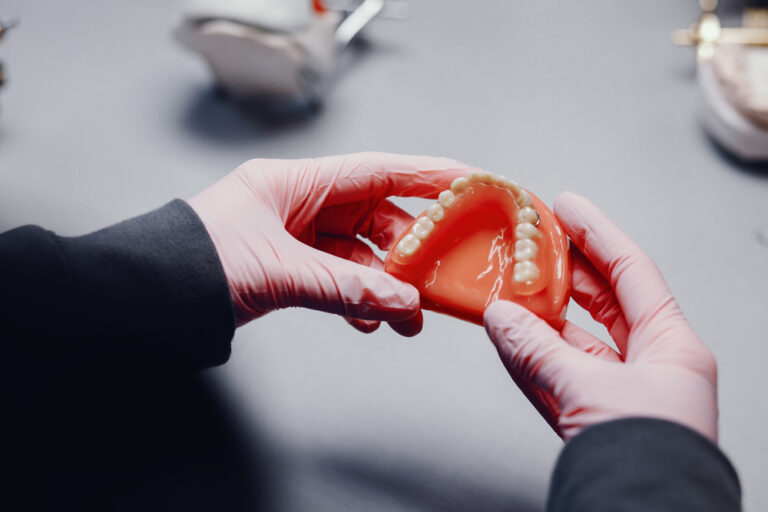Having healthy gums is crucial for maintaining overall oral health. Gum issues, like gingivitis or periodontitis, can lead to serious problems if left untreated. These conditions can cause pain, swelling, and even tooth loss. One effective way to treat severe gum problems is through dental surgery.
Dental surgery can address various gum issues that basic treatments might not fix. Whether you have receding gums, deep pockets, or infected tissues, different surgical options can help restore your gum health. Knowing what to expect can make the idea of surgery less frightening and more manageable.
Many people feel anxious about dental surgery, but understanding the process can ease those fears. So, let’s dive into how dental surgery can be a game-changer for your gum health.
Understanding Common Gum Issues
Gum problems can range from mild to severe, but recognizing them early can help prevent more serious issues. Here are some common gum issues you should know about:
1. Gingivitis: This is the earliest stage of gum disease. Gingivitis causes redness, swelling, and bleeding gums. It is often painless, so many people may not notice it right away. Poor oral hygiene is usually the main cause. Good brushing and flossing can often reverse gingivitis.
2. Periodontitis: If gingivitis is left untreated, it can turn into periodontitis. This is a more serious form of gum disease. It damages the soft tissue and bone that support your teeth. Symptoms include bad breath, loose teeth, and receding gums. Treatment often requires professional cleaning and, in some cases, surgery.
3. Receding Gums: This happens when the gum tissue pulls back, exposing more of your tooth or its root. Receding gums can be caused by aggressive brushing, gum disease, or age. It can make teeth sensitive and increase the risk of decay.
4. Gum Infections: Bacteria can infect your gums, causing pain, discomfort, and swelling. Abscesses, or pockets of pus, can form and need immediate treatment. Infections require professional care to avoid spreading and causing more serious health issues.
Understanding these common gum issues can help you take action early. Good daily oral care and regular dental check-ups are essential for preventing these problems.
Types of Dental Surgery for Gum Problems
When gum issues cannot be treated with basic dental care, surgery might be necessary. There are several types of dental surgeries that can help restore gum health:
1. Scaling and Root Planing: This deep-cleaning procedure removes plaque and tartar from below the gumline. It’s often the first step in treating gum disease. The roots of your teeth are also smoothed to help your gums reattach to your teeth.
2. Gum Grafting: This surgery is used to treat receding gums. Tissue is taken from another part of your mouth and grafted onto the affected area. Gum grafting helps protect exposed roots and reduce sensitivity.
3. Flap Surgery: In flap surgery, the gums are lifted back to remove tartar and bacteria from deep pockets around the teeth. The gums are then stitched back in place so they fit snugly around the tooth.
4. Bone Grafting: This procedure is necessary when bone loss has occurred due to severe gum disease. Bone grafts, either from your own body or a synthetic material, are placed where the bone is missing, helping to regenerate lost bone.
5. Guided Tissue Regeneration: This technique encourages new bone and gum tissue to grow. A special fabric is placed between the bone and gum tissue to allow the bone to grow back, making the surrounding gums healthier.
These types of dental surgeries can effectively treat different gum problems. Your dentist will recommend the best option based on the severity of your condition. Knowing about these surgeries can help you feel more prepared and less anxious about the treatment process.
What to Expect During and After Surgery
Undergoing dental surgery can seem intimidating, but knowing what to expect can ease your concerns. Here’s a rundown of the typical process:
1. Before Surgery: Your dentist will provide specific instructions to prepare for your surgery. This may include fasting, avoiding certain medications, or arranging for someone to drive you home. You will also discuss any health concerns or allergies to ensure the safest procedure.
2. During Surgery: Dental surgeries are usually performed under local anesthesia to numb the area, though sedation or general anesthesia may be used for complicated procedures. The surgery might take anywhere from 30 minutes to a few hours, depending on the complexity. You might feel pressure but should not feel pain.
3. Post-Surgery Care:
- Recovery Room: After surgery, you’ll be monitored for any immediate reactions to the anesthesia.
- Pain Management: Your dentist will prescribe pain relief medications to manage any discomfort. Ice packs can also help reduce swelling.
- Oral Care Instructions: You will get specific instructions on how to care for your mouth. This includes what foods to avoid, how to rinse your mouth, and when to resume brushing and flossing.
- Follow-Up Visits: These appointments are crucial to ensure that you are healing properly. Your dentist may remove sutures or check for any signs of infection.
Following these steps can help ensure a smooth recovery and optimal results from your gum surgery.
Benefits of Dental Surgery for Gum Health
Dental surgery offers several key benefits for those struggling with gum issues. Here’s how it can improve your oral health:
1. Stops Disease Progression: Surgical procedures like scaling and root planing or flap surgery can halt the advancement of gum disease by removing infected tissue and bacteria. This prevents further damage to your gums and teeth.
2. Restores Gum Tissue: Procedures such as gum grafting can restore lost gum tissue, protecting the roots of your teeth from decay and reducing sensitivity. Healthy gums provide better support for your teeth and enhance your smile.
3. Improves Oral Function: Addressing gum disease can help restore normal chewing, speaking, and other oral functions. Treating gum issues alleviates pain and discomfort, making it easier to eat and talk.
4. Prevents Tooth Loss: Advanced gum disease can lead to tooth loss if not treated. Dental surgeries can save teeth by stabilizing the gums and surrounding bone structure, providing a solid foundation.
5. Enhances Overall Health: Good gum health is linked to overall health. Treating gum issues reduces the risk of associated health problems, such as heart disease and diabetes, promoting better general well-being.
Overall, dental surgeries offer significant advantages by providing effective treatment and long-term protection for your gums and teeth.
Say Goodbye to Gum Problems: Dental Surgery
Dental surgery can play a crucial role in addressing and fixing gum issues. By understanding common gum problems and the types of surgeries available, you can make informed decisions about your oral health.
The process might seem daunting, but knowing what to expect during and after surgery can reduce anxiety and ensure a smoother recovery. The benefits of dental surgery in stopping disease progression, restoring gum tissue, improving oral functions, and preventing tooth loss are substantial.
Healthy gums are an essential part of overall health and well-being. Don’t wait until problems become severe. Early intervention through surgical procedures can save your teeth and improve your quality of life.
For expert gum care and dental surgery, schedule an appointment with Colorado Gum Care. Our team of periodontists in Broomfield, CO, is here to help you achieve optimal gum health. Contact us today to take the first step towards a healthier smile!







